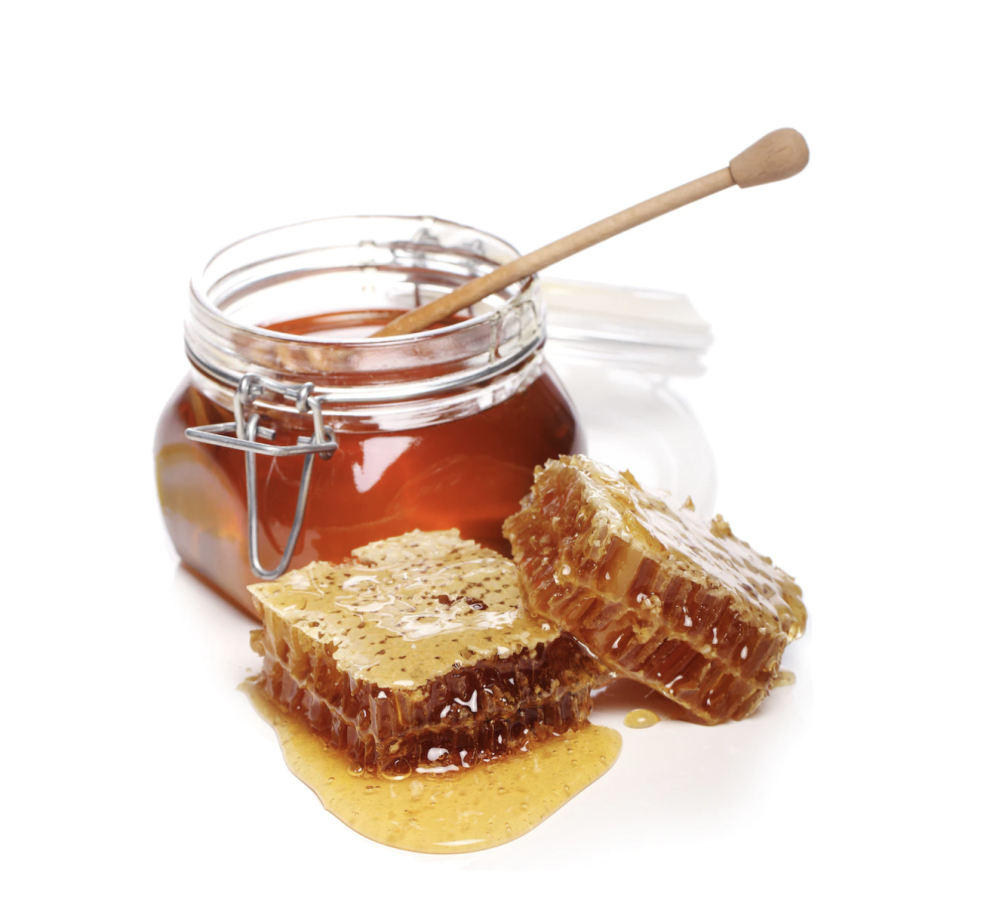
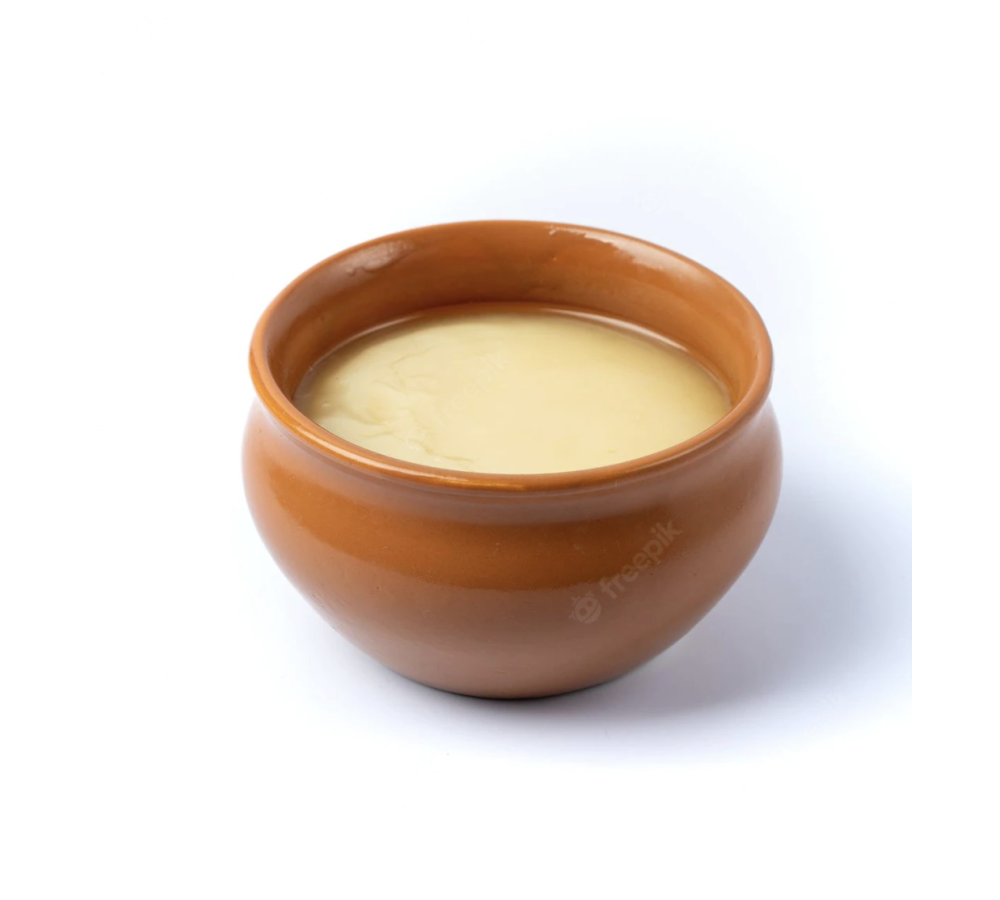
Benefits Of Ghee You May Not Have Known
One of Ayurveda's most treasured foods, ghee has incredible healing properties. From our dal, khichdi to halwas and chapatti; ghee is one kitchen staple we are never getting enough of. In fact, swapping ghee with fattening refined oils has perhaps been one of the biggest blunders of the modern cooking, according to Macrobiotic Nutritionist and Health Practitioner Shilpa Arora. According to her, "Ghee consists of fat soluble vitamins, which aid weight loss. Ghee also plays a key role in balancing hormones and maintaining healthy cholesterol. Ghee also has a high heat point, which prevents it from producing free radicals that damage cell function." Ghee is clarified butter made from the milk of a buffalo or cow. Pure desi ghee, is ghee made of cow's milk. It contains plenty of omega-3 fatty acids along with Vitamin A. Beyond our kitchens, ghee finds a coveted space in beauty and hair care rituals too.
1. Helps You Keep Warm From Within
Ghee is an integral part of Indian winters. According to Ayurveda, ingesting ghee helps you keep warm from within; which is perhaps why it is extensively used in many winter preparations likegajar ka halwa, moong dal halwa, pinni and panjeeri.
2. For Clogged Nose
There is nothing pleasant about cold and clogged nose. You have difficulty in breathing; your taste sense is hampered, and let's not forget the headache and exhaustion that follows. Ayurveda has an interesting nasal drop remedy that may help soothe clogged nose. Ayurvedic experts call it the Nyasa treatment for cold and it involves pouring a few drops of warm pure cow ghee into the nostrils, first thing in the morning. Doing so may provide quick relief as the ghee travels all the way down to the throat and soothes the infection. Make sure, the ghee is pure and warmed to lukewarm temperature.
3. Good Source Of Energy
According to the book, 'Healing Foods' by DK Publishing House, ghee is a good source of energy. It contains medium and short-chain fatty acids, "of which, lauric acid is a potent antimicrobial and antifungal substance." Nursing mothers are often given ladoos loaded with ghee, since they are loaded with energy.Pinni is another Punjabi treat, which is relished across North India, not just for its taste but for its energy boosting properties too.
4. Source Of Good Fat
Are you on a weight loss spree? You may have heard a lot of people coming up with a pro-tip or two. And one of the most common weight loss tips we have all heard is- avoid fats. In a bid to lose weight, you may have even considered eliminating all fats sources from your diet. But doing so may do you more harm than good. Fats, carbs and proteins are three macronutrients that are essential for sustaining a healthy life. Removing any food group from your diet is never a sustainable way to lose weight. What you do need to do however is - choose better. Avoid all bad fats in fries, burgers and processed junk, and choose better alternatives in the form of ghee, avocados etc. According to Shilpa Arora, ghee is one of the most preferred vehicles for oleation: a process of ingesting oil over a period of time. This actually helps pull fat soluble toxins out of the cells and triggers fat metabolism, a process where the body kick-starts to burn its own fat for fuel.
5. Good For Intestinal Health:
Shilpa also shares with us, that ghee happens to be one of the highest quality food sources of butyric acid, which makes it an ideal pick to support the health of the intestinal walls. The cells of the colon use butyric acid as their preferred source of energy.
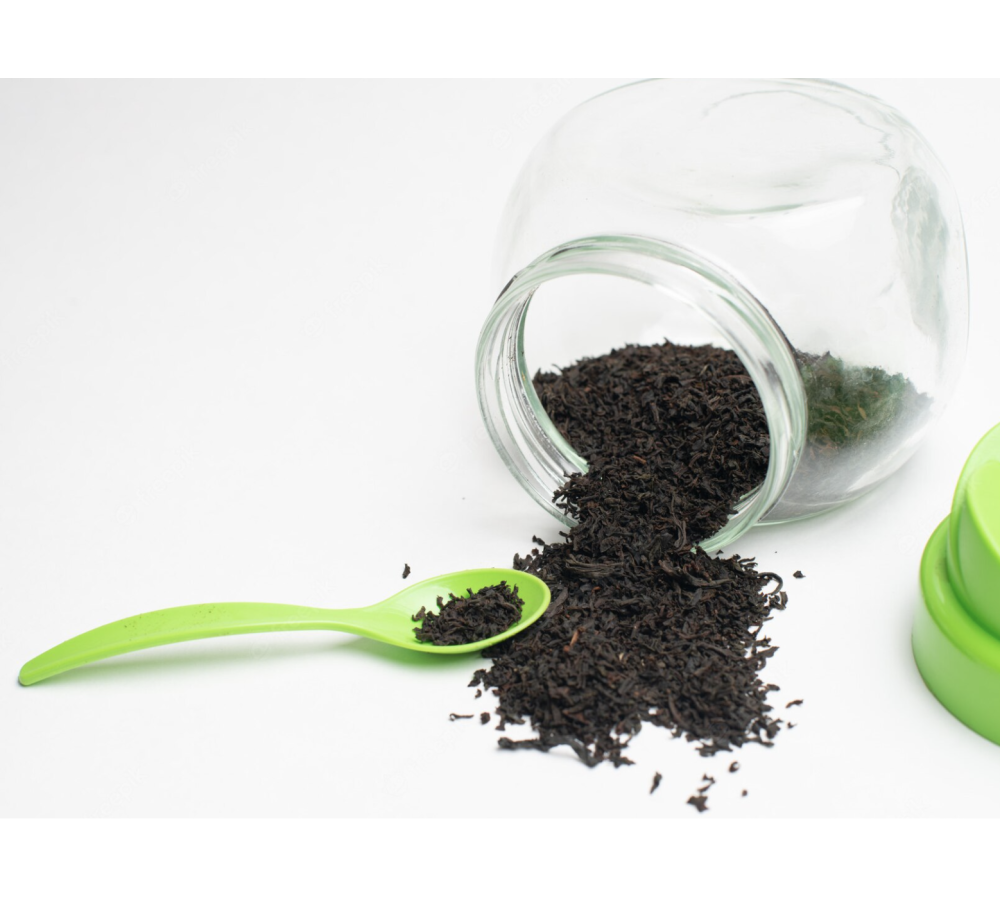
What are the health benefits of green tea?
People have hailed the health benefits of green tea for centuries. Studies suggest that consuming green tea may positively affect skin health, help with weight loss, and reduce the risk of cardiovascular disease.
According to a report from the International Institute of Sustainable Development, tea is the second most consumed beverage in the world, after water.
All tea types, except herbal, are brewed from the dried leaves of the Camellia sinensis bush. The level of oxidation of the leaves determines the type of tea.
Green tea is made from unoxidized leaves and is one of the least processed types of tea. For this reason, it contains the most antioxidants and beneficial polyphenols.
People used green tea in traditional Chinese and Indian medicine to control bleeding and heal wounds, aid digestion, improve heart and mental health, and regulate body temperature.
Studies suggest that green tea may have positive effects on weight loss, liver disorders, type 2 diabetes, Alzheimer’s disease, and more.
However, it is important to note that more evidence is necessary before scientists can definitively prove these possible health benefits.
People used green tea in traditional Chinese and Indian medicine to control bleeding and heal wounds, aid digestion, improve heart and mental health, and regulate body temperature.
Studies suggest that green tea may have positive effects on weight loss, liver disorders, type 2 diabetes, Alzheimer’s disease, and more.
However, it is important to note that more evidence is necessary before scientists can definitively prove these possible health benefits.
In countries where green tea consumption is high, some cancer rates tend to be lower. However, human studies have not shown consistent evidence to prove that drinking green tea reduces the overall risk of cancer.
A 2020 database review of epidemiological and experimental studies in humans produced inconsistent results as well as limited evidence of the benefit of green tea consumption for lowering the risk of cancer. The researchers assessed 142 completed studies, including 1.1 million participants.
However, the topical application of green tea polyphenol extracts may have a role in protecting the skin from UVB radiation. A 2018 review of in vitro, in vivo, and human studies demonstrated the potential benefits of tea polyphenols in the chemoprevention of UVB-induced skin cancer.
Animal and test tube cell studies have suggested some positive impacts on the following types of cancer:
- breast
- bladder
- ovarian
- colorectal (bowel)
- esophageal (throat)
- lung
- prostate
- skin
- stomach
Overall findings from numerous human studies have yielded inconsistent results and limited evidence of the benefit of drinking green tea on the overall risk of cancer.
In countries where green tea consumption is high, some cancer rates tend to be lower. However, human studies have not shown consistent evidence to prove that drinking green tea reduces the overall risk of cancer.
A
However, the topical application of green tea polyphenol extracts may have a role in protecting the skin from UVB radiation. A
- breast
- bladder
- ovarian
- colorectal (bowel)
- esophageal (throat)
- lung
- prostate
- skin
- stomach
Overall findings from numerous human studies have yielded inconsistent results and limited evidence of the benefit of drinking green tea on the overall risk of cancer.
A review of several studies found that the catechins in green tea and caffeine may have a role in increasing energy metabolism, which may lead to weight loss.
A further meta-analysis of several different tea polyphenols-induced weight loss mechanisms suggested that catechins and caffeine synergistically produced weight loss effects, as opposed to them being the result of caffeine alone.
However, the impact of drinking green tea on weight loss is unlikely to be of clinical importance. Most studies that have shown small changes in metabolism used green tea extracts with extremely high concentrations of catechins.
Learn more about how green tea can help with weight loss here.
A review of several studies found that the catechins in green tea and caffeine may have a role in increasing energy metabolism, which may lead to weight loss.
A further
However, the impact of drinking green tea on weight loss is unlikely to be of clinical importance. Most studies that have shown small changes in metabolism used green tea extracts with extremely high concentrations of catechins.
Learn more about how green tea can help with weight loss here.
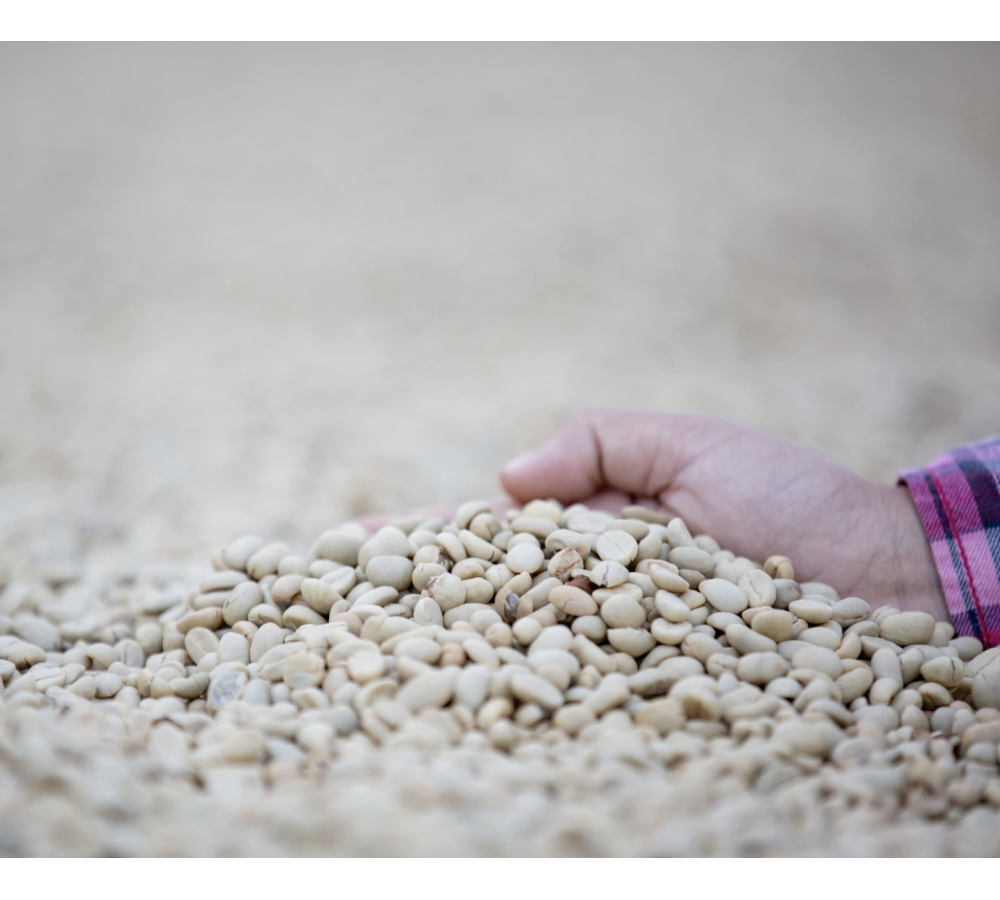
What Is Green Coffee? All You Need to Know
Green coffee is increasingly common in the health and wellness community.
As such, you may have heard about its rich supply of health-promoting plant compounds.
This article takes an in-depth look at green coffee, including its potential benefits and risks
Green coffee beans are simply regular coffee beans that haven’t been roasted and remain completely raw.
Their extract is popular as a dietary supplement, but green coffee can also be purchased in whole-bean form and used to make a hot beverage, much like roasted coffee.
Bear in mind that a mug of this light green drink will not taste like the roasted coffee you’re used to, as it has a much milder flavor. It’s said to taste more like herbal tea than coffee.
What’s more, its chemical profile is quite different than that of roasted coffee, though their origins are similar.
It boasts an abundant supply of chlorogenic acids — compounds with potent antioxidant and anti-inflammatory effects that may provide many health benefits (
Roasted coffee products also contain small amounts of chlorogenic acid, but most of it is lost during the roasting process (
In 2012, green coffee extract was promoted as a miracle weight loss supplement by American celebrity physician and talk-show host Dr. Oz.
Many health experts have since refuted the notion that it has any significant impact on weight.
Even so, green coffee extract remains one of the most popular weight loss supplements on the market.
Several small studies have treated mice with the extract and found that it reduced total body weight and fat accumulation significantly. However, studies in humans have been far less conclusive (
Most human research on green coffee has been inconclusive. While some participants lost weight, the studies were poorly designed with small sample sizes and short durations (
Thus, no definitive evidence demonstrates that green coffee is effective for weight loss. Larger, well-designed human studies are needed.
Green coffee may have health benefits other than weight loss.
In fact, its chlorogenic acids may help reduce your risk for chronic diseases like diabetes and heart disease (
In an 8-week study, 50 people with metabolic syndrome — a cluster of risk factors, including high blood pressure and blood sugar, that increase your risk for diabetes and heart disease — took 400 mg of decaffeinated green coffee bean extract twice daily (
Those who took the extract experienced significant improvements in fasting blood sugar, blood pressure, and waist circumference, compared with a control group.
Although these results are promising, larger studies are needed.
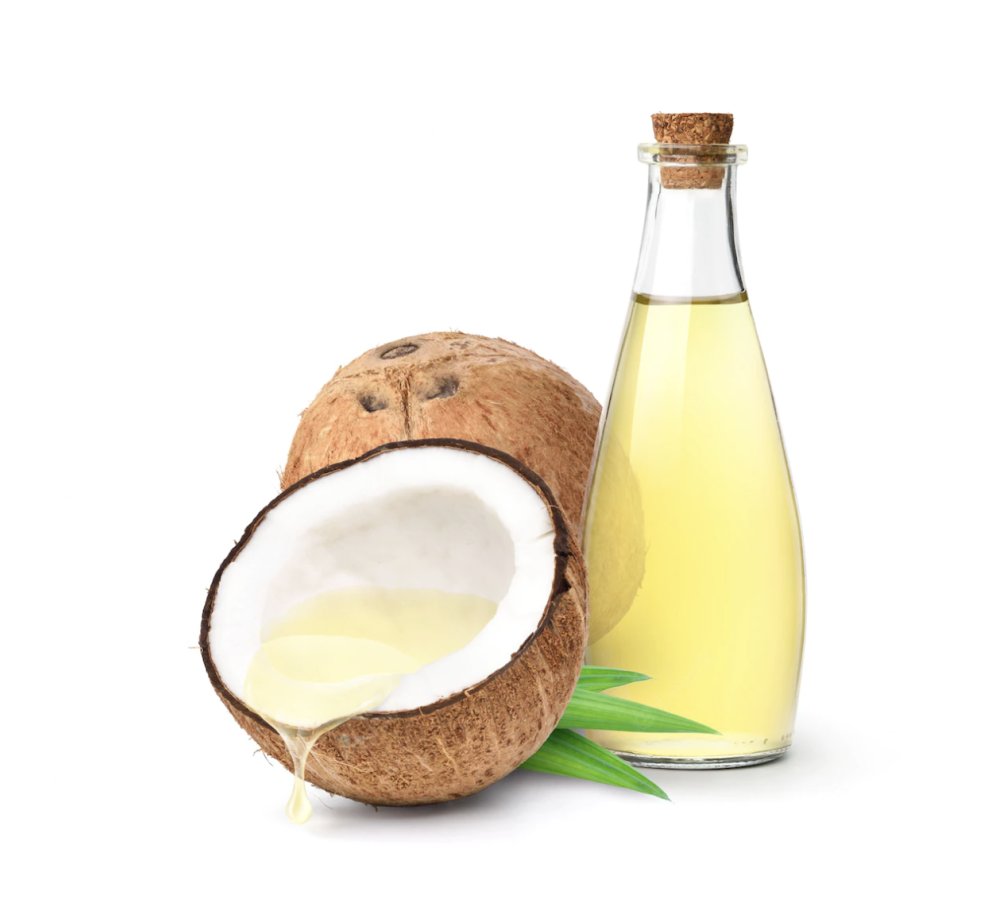
5 Evidence-Based Health Benefits of Coconut Oil
Coconut oil is an increasingly popular cooking oil.
Many people praise it for its health benefits, including antimicrobial and antioxidant properties, improved skin and oral health, and weight loss potential.
Here are 10 evidence-based health benefits of coconut oil, plus some special considerations to keep in mind if you want to include it in your diet.
Coconut oil is a rich source of medium-chain triglycerides (MCTs), a type of saturated fat.
In general, saturated fats are divided into three subgroups, each of which has different effects in your body. These subgroups are (
- long-chain
- medium-chain
- short-chain
Scientists are studying medium-chain triglycerides (MCTs), including those found in coconut oil, for their potential health benefits.
For instance, some evidence shows that consuming MCTs may increase the number of calories your body burns. In doing so, it may help promote weight loss (
Since the fats in coconut oil are 65% MCT, it may have fat-burning properties that are similar to pure MCT oil (
However, there’s currently no good evidence to say that eating coconut oil itself will increase the number of calories you burn.
In fact, studies on MCT’s weight loss potential even call for caution when interpreting results because larger and higher-quality studies are still needed (
While MCTs may increase how many calories you burn, keep in mind that coconut oil is very high in calories and can easily lead to weight gain if you consume it in large amounts.
The MCTs in coconut oil provide a quick supply of energy.
When you eat long-chain triglycerides (LCTs), the fat molecules are transported through your blood to tissues that need them, such as muscle or fat tissue (
On the other hand, MCTs go straight to your liver and become a rapid energy supply in much the same way as carbs — your body’s preferred source of energy (
In fact, MCTs have been long used in sports nutrition products for athletes who need a source of energy their body can absorb and use fast (
Coconut oil has antimicrobial and antifungal properties due to its MCT content — specifically, lauric acid (
Lauric acid is a fatty acid that makes up about 50% of the MCTs in coconut oil.
Research suggests it may have antimicrobial effects against disease-causing microorganisms, such as (
- Staphylococcus aureus
- Streptococcus mutans
- Streptococcus pyogenes
- Escherichia coli
- Helicobacter pylori
Studies show that lauric acid may act as a bacteriostatic agent. This is a substance that prevents bacteria from multiplying without killing the bacteria.
It may also act as a bacteriocidal agent, which destroys some bacteria (
In addition, it may also inhibit the growth of microorganisms that are harmful to plants (
One interesting feature of MCTs is that they may help reduce food intake (
This may be related to how the body breaks them down. A proportion of MCTs you eat are broken down in a process that produces molecules called ketones (
Ketones reduce appetite by either acting directly on the brain’s chemical messengers or altering the levels of hunger-inducing hormones, such as ghrelin (
You may be familiar with ketones in the context of ketogenic diets, which are quite popular these days. People who are on keto diets don’t eat many carbs, but they do often eat lots of fat. For this reason, their bodies tend to use ketones for fuel.
However, though coconut oil is one of the richest natural sources of MCTs, there’s no evidence that coconut oil itself reduces appetite more than other oils. In fact, one study reports that coconut oil is less filling than MCT oil (
Coconut oil has many uses that have little to do with eating. Many people use it for cosmetic purposes to improve the health and appearance of their skin.
Studies show that coconut oil can boost the moisture content of dry skin. It may also improve the function of the skin, helping prevent excessive water loss and protecting you from external factors, such as infectious agents, chemicals, and allergens (
In fact, a recent study determined that applying 6–8 drops of virgin coconut oil on your hands and leaving it overnight may be an effective way to prevent dry skin caused by frequent use of alcohol-based hand sanitizers (
It may also reduce the severity of mild to moderate symptoms of atopic dermatitis, a chronic skin disease characterized by skin inflammation and defects in skin barrier function (

7 Unique Health Benefits of Honey
Honey has potential health benefits and plays a role in many home remedies and alternative medicine treatments. It contains small amounts of some nutrients, but most people typically don’t consume enough honey for it to be a significant dietary source of vitamins and minerals.
Honey is a syrupy liquid that honeybees make from plant nectar. Loved worldwide for its sweetness and depth of flavor, it’s used in many foods and recipes.
The smell, color, and taste of honey vary based on the type of flowers it’s made from, so there are countless varieties available.
Honey has a number of potential health benefits and plays a role in many home remedies and alternative medicine treatments.
Here are 7 unique health benefits of honey.
One tablespoon (20 grams) of honey contains (1Trusted Source ):
Honey is essentially pure sugar, with no fat and only trace amounts of protein and fiber. It contains small amounts of some nutrients, but most people typically don’t consume enough honey for it to be a significant dietary source of vitamins and minerals.
Still, it’s worth noting that honey is rich in health-promoting plant compounds known as polyphenols.
High quality honey — which is minimally processed, unheated, and fresh — contains many important bioactive plant compounds and antioxidants, such as flavonoids and phenolic acids. Darker varieties tend to offer more antioxidants than lighter varieties (2Trusted Source ).
Antioxidants help neutralize reactive oxygen species (ROS) in your body, which can build up in cells and cause damage. This damage can contribute to conditions like premature aging, type 2 diabetes, and heart disease (2Trusted Source ).
As such, many of honey’s health benefits are attributed to its antioxidant content
When it comes to blood sugar management, honey may offer some slight benefits over regular sugar.
Although honey raises your blood sugar level just like other types of sugar do, the antioxidants it contains may help protect against metabolic syndrome and type 2 diabetes.
Researchers have found that honey may increase levels of adiponectin, a hormone that reduces inflammation and improves blood sugar regulation (3Trusted Source ).
There’s also some evidence that daily honey intake may improve fasting blood sugar levels in people with type 2 diabetes (3Trusted Source )
However, while honey may be slightly better than refined sugar for people with diabetes, it should still be consumed in moderation (4Trusted Source ).
It’s also important to know that certain types of honey could be diluted with plain syrup. Although honey adulteration is illegal in most countries, it remains a widespread problem
Honey may also help prevent heart disease.
According to one review, honey may help lower blood pressure, improve blood fat levels, regulate your heartbeat, and prevent the death of healthy cells — all factors that can improve your heart function and health (6Trusted Source ).
One observational study including over 4,500 people over age 40 associated a moderate honey intake with a lower risk of high blood pressure among women (7Trusted Source ).
Plus, a study in rats promisingly showed that honey helped protect the heart from oxidative stress (8Trusted Source ).
Additionally, raw honey typically contains propolis, a type of resin that bees produce from sap-producing trees and similar plants. Propolis may improve cholesterol and triglyceride levels (9Trusted Source ).
All told, there’s no long-term human study available on honey and heart health. More research is needed to better understand honey’s effects on heart health
Topical honey treatment has been used to heal wounds and burns since ancient Egypt. The practice is still common today.
A review of 26 studies on honey and wound care found it most effective at healing partial-thickness burns and wounds that have become infected after surgery (10Trusted Source ).
Honey is also an effective treatment for diabetes-related foot ulcers, which are serious complications that can lead to amputation.
One study including people with diabetes-related foot ulcers reported a 43.3% success rate with honey as a wound treatment. In another study, topical honey healed an impressive 97% of participants’ diabetes-related ulcers (11Trusted Source ).
Researchers theorize that honey’s healing powers come from its antibacterial and anti-inflammatory effects (12Trusted Source ).
What’s more, it may help treat other skin conditions including psoriasis and herpes lesions (13Trusted Source , 14Trusted Source ).
Manuka honey is considered especially effective at treating burns. However, if you have a severe burn, you should seek medical attention immediately (15Trusted Source )